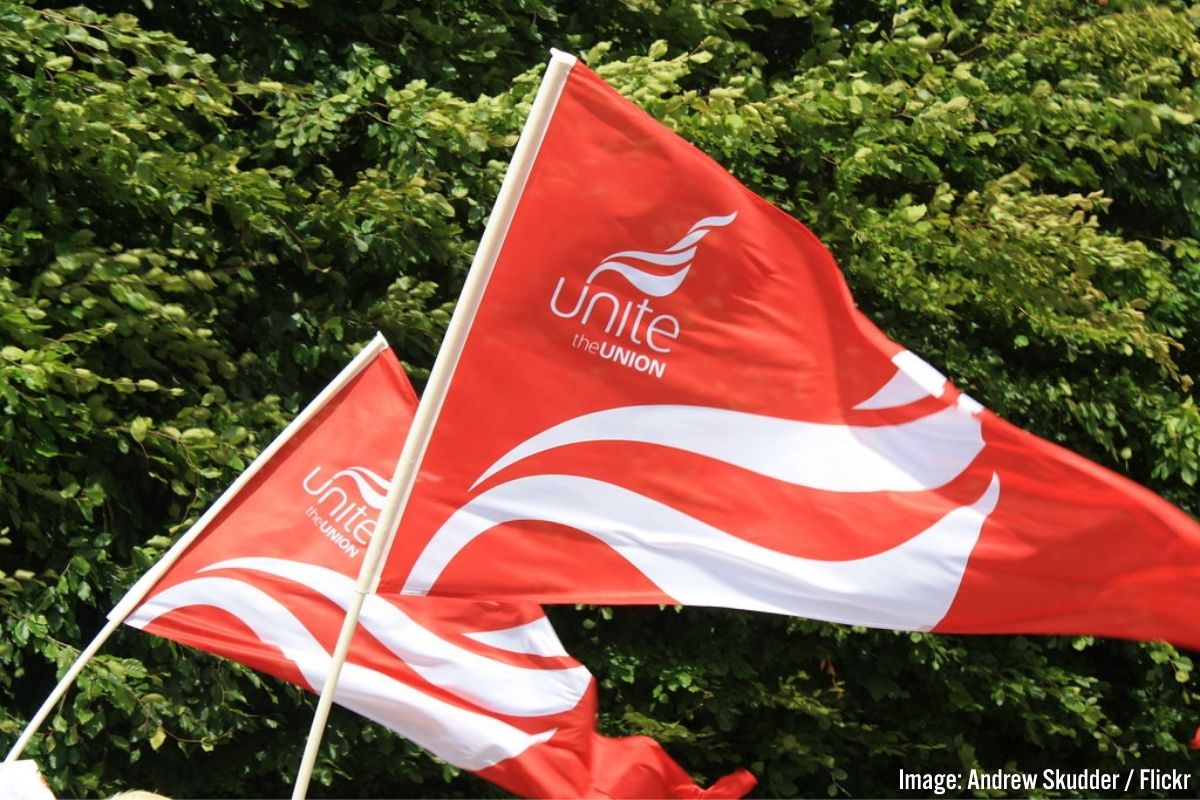The recent Unite policy conference gave a glimpse of the changes that lie in store for the union and its members. With the bosses going on the offensive, and major industrial battles looming, the stage is set for militant action.
The 6th Unite policy conference was held in Liverpool last week, amidst some of the stormiest battles the union and its members have faced for years.
Overall, about 500 delegates attended from all regions across the country, alongside representatives from sister unions organised in Germany, Norway, Italy, and the USA.
Socialist Appeal comrades intervened in the conference by presenting the very first issue of our brand new Unite Marxists bulletin to attendees, and also by taking part in democratic discussions as delegates.
You can also read Issue 1 of the Unite Marxists bulletin here: https://t.co/vGC9UmdKoo
Containing articles and analysis from our supporters in Unite, it’s not to be missed! pic.twitter.com/K6Px58PvDp
— Socialist Appeal (@socialist_app) October 18, 2021
Battles
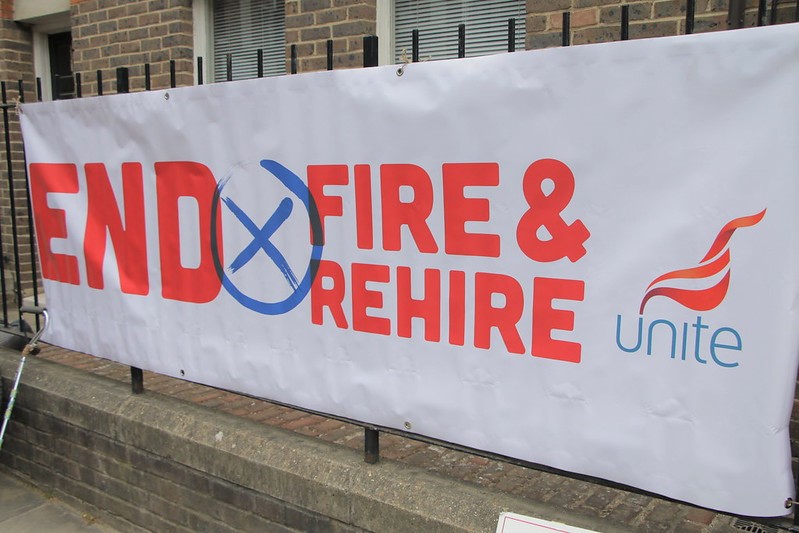 There has been a surge in industrial battles across the trade unions due to the crisis of capitalism. In every sector represented by Unite, workers are engaged in disputes with employers – often related to wages, conditions, ‘fire-and-rehire’ attacks, outsourcings, privatisations, and union-busting.
There has been a surge in industrial battles across the trade unions due to the crisis of capitalism. In every sector represented by Unite, workers are engaged in disputes with employers – often related to wages, conditions, ‘fire-and-rehire’ attacks, outsourcings, privatisations, and union-busting.
At conference, it was reported that the number of ballots the union was organising had increased by 60% compared to last year.
In many workplaces, anti-union turnout thresholds have been completely smashed in strike ballots. Results of 80% and above in favour of action are not at all uncommon in these disputes, showing the depth of feeling now taking hold amongst the rank and file.
While it is true that 65% of the ballots resulted in settlements before any strike action became necessary, this in no way indicates that the struggle ahead will be easy.
Below-inflation pay rises – pay cuts, in effect – are rife in all sectors. The ending of the furlough scheme has exacerbated the crisis of job losses. And ‘fire-and-rehire’ tactics continue to spread, further stressing the need for major industrial battles in the period to come.
Combines
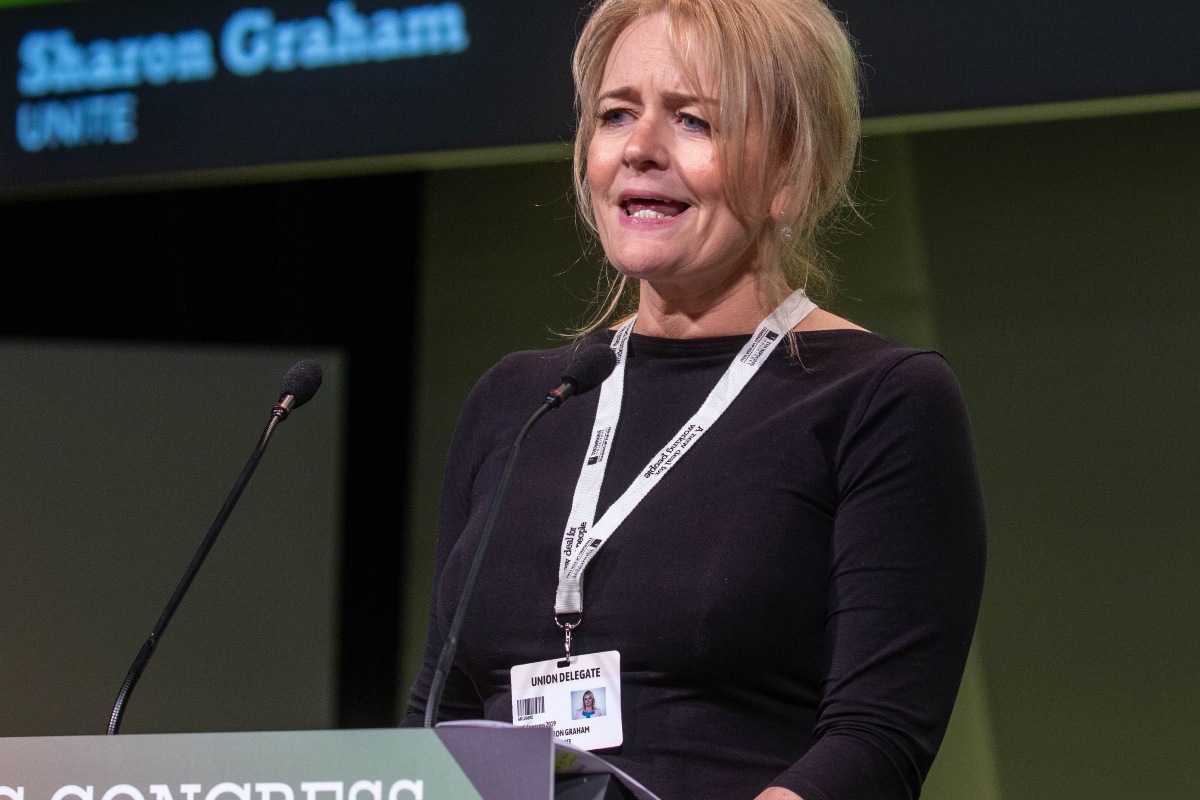 As we said at the time, the election of Sharon Graham as Unite general secretary shows an immense mood of discontent among rank-and-file members towards the previous union apparatus, and a recognition that the old methods of backroom deals with the bosses will not protect them.
As we said at the time, the election of Sharon Graham as Unite general secretary shows an immense mood of discontent among rank-and-file members towards the previous union apparatus, and a recognition that the old methods of backroom deals with the bosses will not protect them.
In this context, Sharon’s speech went down well with the delegates. Her major point was to address the issues that Unite faces today, such as fire and rehire, wage cuts, casualisations, and union-busting by employers.
Graham explained her plans to establish and strengthen ‘combines’ – including cross-sector and even trans-national combines – as part of an effort to counter these problems. It was announced that these will be ‘lay-member-led’ and will be given significant resources.
Combines are a parallel structure in the union. They will not replace the traditional structures of the union, but will attempt to organise across them, in order to fully bring the union’s industrial might to bear in a struggle.
Some examples of cross-sector combines were given, including the ‘combine on nationalisation of the workplaces’ and ‘combine against fire and rehire’.
The exact details of the functioning and structure of the combines are still unclear, but they show that pressure from below is already forcing the union to adapt to meet the challenges ahead.
Solidarity
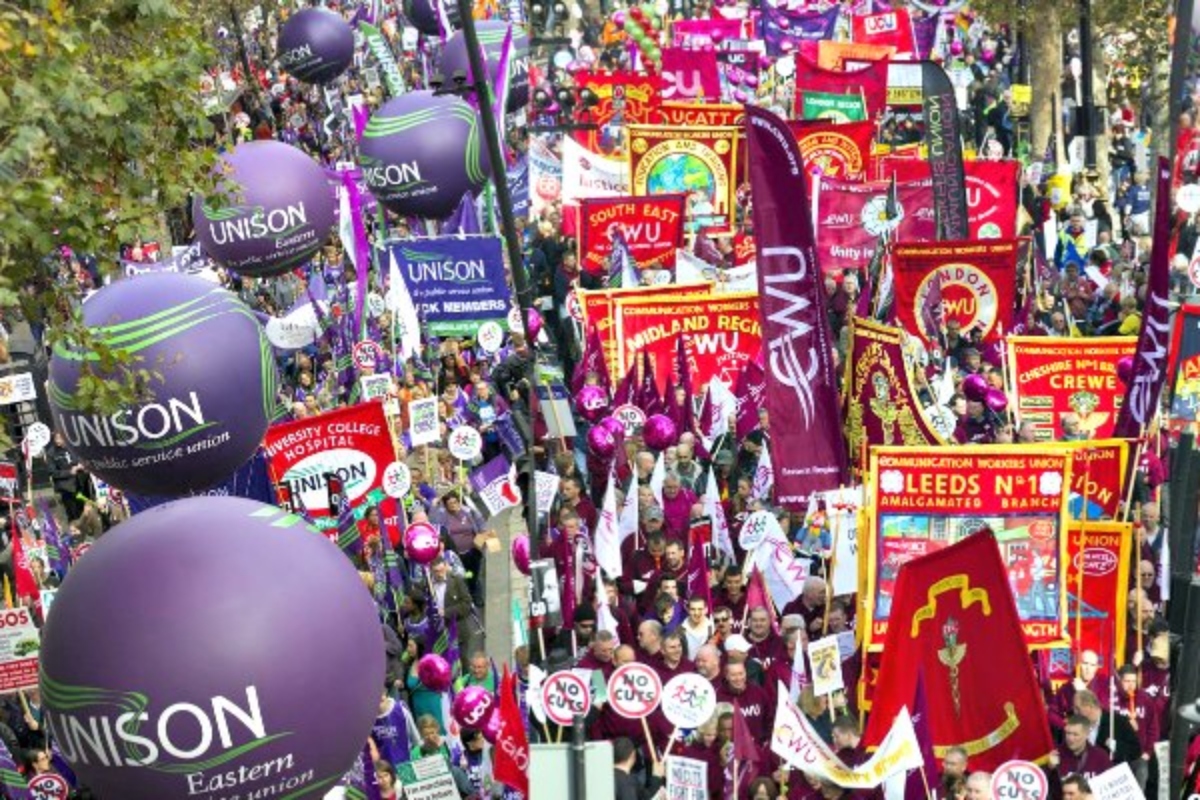 The new general secretary also emphasised that the exploitation of workers in Britain by multinational employers requires strong international workers’ solidarity in response.
The new general secretary also emphasised that the exploitation of workers in Britain by multinational employers requires strong international workers’ solidarity in response.
Unite is already affiliated with six international trade unions. However, Graham argued that Unite was not proactively using these global platforms to fight its industrial battles. The example of Amazon was highlighted, with calls for a coordinated effort between trade unions in the UK, USA, and Germany.
Furthermore, a fringe meeting was held with Sharon Graham and CWU general secretary Dave Ward, where it was proposed that left-led unions (such as Unite, CWU, and PCS) should form an alliance to fight the bosses’ attacks.
This is a welcome development. The limits of isolated and atomised struggles is becoming increasingly clear. Joint and coordinated struggles – ones that go beyond traditional union boundaries, as well as national boundaries – are the way forward. And Unite’s turn towards such organisation is very welcome indeed.
Motions
 A total of 162 motions were submitted to the conference from various regions, with members taking to the podium to debate the future course of our union.
A total of 162 motions were submitted to the conference from various regions, with members taking to the podium to debate the future course of our union.
A major highlight of the conference was the passing of a motion for a new socialist Clause IV, based upon the wording of the late Tony Benn, calling for the nationalisation and implementation of workers’ control across the economy.
By passing this motion, delegates committed Unite to politically backing the nationalisation of the top monopolies, finance houses, and major industries. In short, it commits the union to the abolition of capitalism – an excellent step forward!
#UnitePolicyConference delegate and Socialist Appeal supporter Russ Blakely proposing Composite 15 on a new Clause 4.
This commits Unite to backing “the common ownership, under democratic control and management by working people, of the commanding heights of the economy” pic.twitter.com/KiFmICcP8N
— Socialist Appeal (@socialist_app) October 22, 2021
A proportional representation (PR) motion was also passed at the conference, despite significant resistance by the most class-conscious delegates.
As we have explained elsewhere, calls for PR are, at best, a distraction. At worst, they are a trap set by the establishment, with workers seeing little-to-no benefit from so-called ‘progressive alliances’ in places such as Germany that have PR.
The issue of Unite’s political fund and its relationship to the Labour Party were also discussed. The union’s official position, coming out of this conference, is now to cut funding for Labour MPs if they act against union members.
Specific references were also made to the situation in local councils, for example, where workers face scandalous attacks from Labour Party councillors and mayors, including the use of fire and rehire.
Strategy
This year’s policy conference provided important steps forward for the union, with many excellent policies passed, and a determined mood amongst members on display.
There is still some way to go, however. Currently, the overall strategy is still to bring bosses to the negotiation table, and to get the ‘best deals’ for members under the current ‘financial landscape’. But given the deepening crisis of capitalism, this means at best winning a few extra crumbs or waging a rearguard battle.
Marxists, of course, will fight for any genuine reform, the struggle for which can give workers increasing confidence in their own strength.
The period ahead, however, is set to be one not of reforms, but of counter-reforms, as the capitalists go on the offensive to boost their profits at workers’ expense – as the many recent examples of fire and rehire show.
Socialism
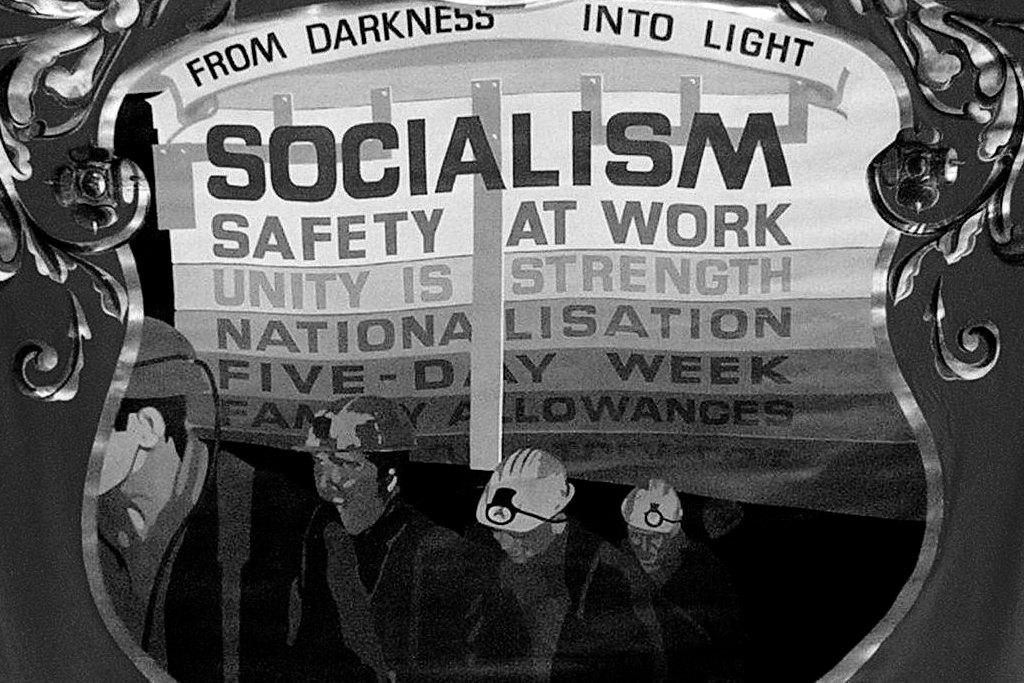 There can be no hopes in asking the bosses to be nicer or kinder; nor in appealing to the Tories who represent them in Parliament.
There can be no hopes in asking the bosses to be nicer or kinder; nor in appealing to the Tories who represent them in Parliament.
Instead, the trades unions must link up and wage a militant struggle on both the industrial and political front, if we are to win permanent gains for our class.
If the bosses say that factories must close, jobs must go, or pay and conditions must be eroded, then the unions need to respond defiantly by demanding that the books are opened up to the labour movement – with nationalisation under workers’ control implemented to defend workers and their industries.
The callous laws and logic of capitalism are leading to a race against the bottom, with workers paying the price in the form of job cuts and attacks on wages and conditions.
Only by transforming society along socialist lines, with a plan of production under workers’ control, can we protect our lives and our livelihoods, and utilise the resources of industry in the interests of the many, and not the profits of few.

